- S.D. Eibar ready for maiden La Liga outing
- SD Eibar stengthen ahead of debut La Liga season
- Can ‘Super Mario’ live up to expectations in Madrid?
- MAN IN THE GROUND – Brentford 0 – 4 Osasuna
- Historic Basque derby welcomes S.D. Eibar to La Liga
- Munich to Madrid, via Brazil – Tony Kroos
- Rakitic in Spanish Switch
- Can Spain find redemption in Rio?
- Viva Espana! A season of redemption for Spanish football
- From the old to the new: who can fill the void in years to come for La Roja?
Spotlight Season: The Birth of La Liga – 1928-29
- Updated: 5 March, 2012
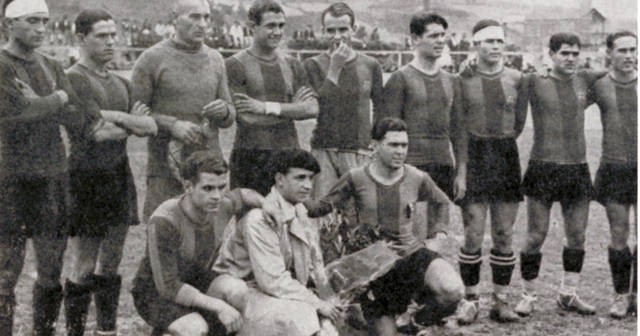
After years of wrangling, Spain’s foremost teams were finally getting their act together to form the country’s first national league. Before this season, competitions were made up of regional championships, the winners qualifying for the national cup completion.
There were two distinct camps, those that wanted a smaller, elite league consisting of 6 teams and those that wanted a more expansive and nationally representative league.
They were finally corralled by Jose Maria Atxa Larrea, Vice-President of 1919 cup winners Arenas Club de Getxo, who brokered the final format of ten teams. These were made up of the clubs that had either won the Spanish Cup or were runners-up in the final. Nine teams were guaranteed a place on these criteria, with the tenth place going to the winner of a pre-season competition amongst the other clubs who had expressed an interest.
In the end, it took Racing Santander three matches to beat Sevilla FC in Madrid and claim the final spot.
The story of the season
Although classed as the 1928-29 season, the bickering over the make-up of the league meant that it did not get under way until February 1929. Even the pre-season qualifiers did not start until Christmas Day 1928, and with the Copa still the premier tournament, that had to be completed before the league could start. Finally on Sunday 10 February 1929, all five games kicked-off simultaneously.
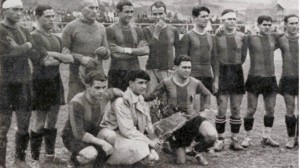 Within five minutes, the first ever goal was scored by Espanyol’s “Pitus” Prats in their match at the Estadi Sarria against Real Union. Real Madrid led the way from the outset, winning seven of their first nine matches, but by week 11, the league had a new leader in the unlikely shape of Arenas Club de Getxo.
Within five minutes, the first ever goal was scored by Espanyol’s “Pitus” Prats in their match at the Estadi Sarria against Real Union. Real Madrid led the way from the outset, winning seven of their first nine matches, but by week 11, the league had a new leader in the unlikely shape of Arenas Club de Getxo.
A nine match unbeaten run had taken the Basque side to the top of the league, until the wheels came off with a 1-7 defeat at Real Union and 0-2 home defeat to Barcelona. After their mid-season wobble, Real Madrid had re-grouped and by match-day 14, was back at the top of the league. Here they remained going into the final match of the season, where they headed Barcelona on goal average.
The final round of matches saw Real Madrid lose at Athletic Club de Bilbao and Barcelona comfortably beat Real Union 4-1 and go top of the league for the first time on the last day of the season.
Match of the Season
Their rivalry had yet to develop to the full-scale revulsion that we see today, and Real Madrid’s matches with Barcelona were not exactly pivotal. The first on the 17 February resulted in an away victory by 1-2 to Real Madrid. Barcelona returned the favour on 11 May with a 1-0 victory in Madrid.
Perhaps the key result was in week 14 when Real Madrid was held to a 2-2 draw at home to bottom club Racing Santander, one of only two points the Cantabrians picked up on their travels.
Trivia
Pre-season qualifiers, Racing Santander finished bottom, and faced a two leg play-off against second division winners Sevilla FC for a place in the following season’s top flight. Racing prevailed 3-2 on aggregate.
Barcelona, Espanyol and Europa each played one of their home matches at the 70,000 capacity Estadio de Montjuic, which at the time was by far and away the country’s largest stadium.
The records
Athletic Club’s 9-0 victory over Espanyol in week 2 was the biggest win of the season, probably not helped by the absence of Espanyol’s legendary goalkeeper Ricardo Zamora.
Athletic’s Basque rivals Real Sociedad were the league’s tops scorers with 46 goals, whilst not surprisingly, bottom club Racing Santander conceded the most with 50 goals hitting the back of their net. There was total of 383 goals at an average 4.26 per game.
Pichichi
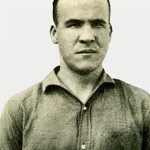 The Pichichi, the award for top goal scorer in the first division was not devised by Marca until 1952. For completeness of their records, Marca awarded backdated titles and Real Sociedad’s Paco Bienzobas finished top of the charts for season 28-29 with 17 goals in 18 games.
The Pichichi, the award for top goal scorer in the first division was not devised by Marca until 1952. For completeness of their records, Marca awarded backdated titles and Real Sociedad’s Paco Bienzobas finished top of the charts for season 28-29 with 17 goals in 18 games.
Bienzobas also played and managed CA Osasuna, before finishing his career back in San Sebastian. He died in 1981, the day after Real Sociedad claimed their first ever La Liga title.
Zamora
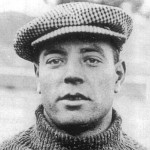 Likewise, Marca did not set up the Zamora Trophy until 1958. It recognises the goalkeeper who has the lowest goals against per game ratio.
Likewise, Marca did not set up the Zamora Trophy until 1958. It recognises the goalkeeper who has the lowest goals against per game ratio.
When applied retrospectively, it is rather fitting that the first winner was the renowned Ricardo Zamora, the first of the modern goalkeepers.
He conceded 24 goals in 15 games and his absence was felt, as Espanyol let in another 14 in the three matches in which Zamora missed.
Today
Seven of the ten original participants play in this season’s championship, with Athletic Club, Barcelona & Real Madrid having competed in every single top flight season.
Real Union can be found in Segunda B, whilst Arenas Club de Getxo and CE Europa play in the Tercera.
Follow @icentrocampista

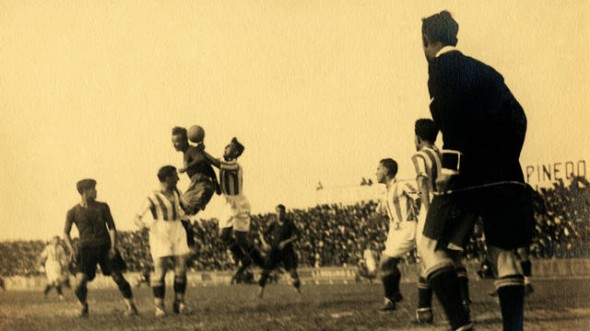

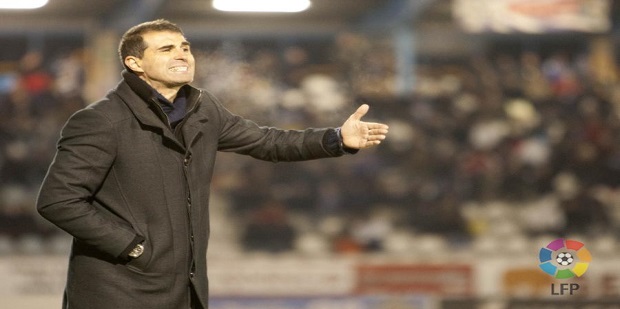
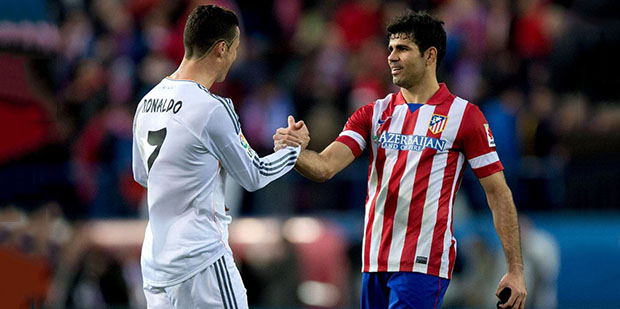


You must be logged in to post a comment Login